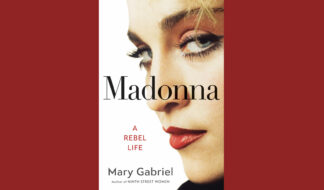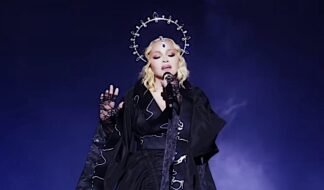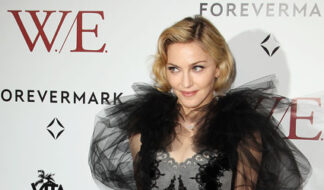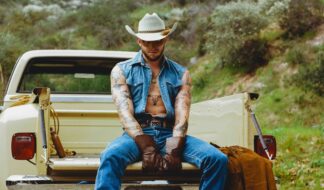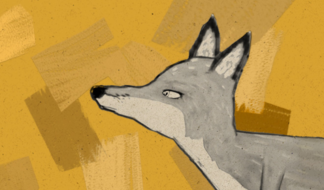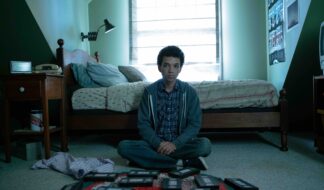At Her Detroit Show, Madonna Reminded Me What I Once Had Trouble Believing: That Gay Boys Can Survive
Bringing her musical memoir to her hometown, the gay icon demonstrated why she has always been one
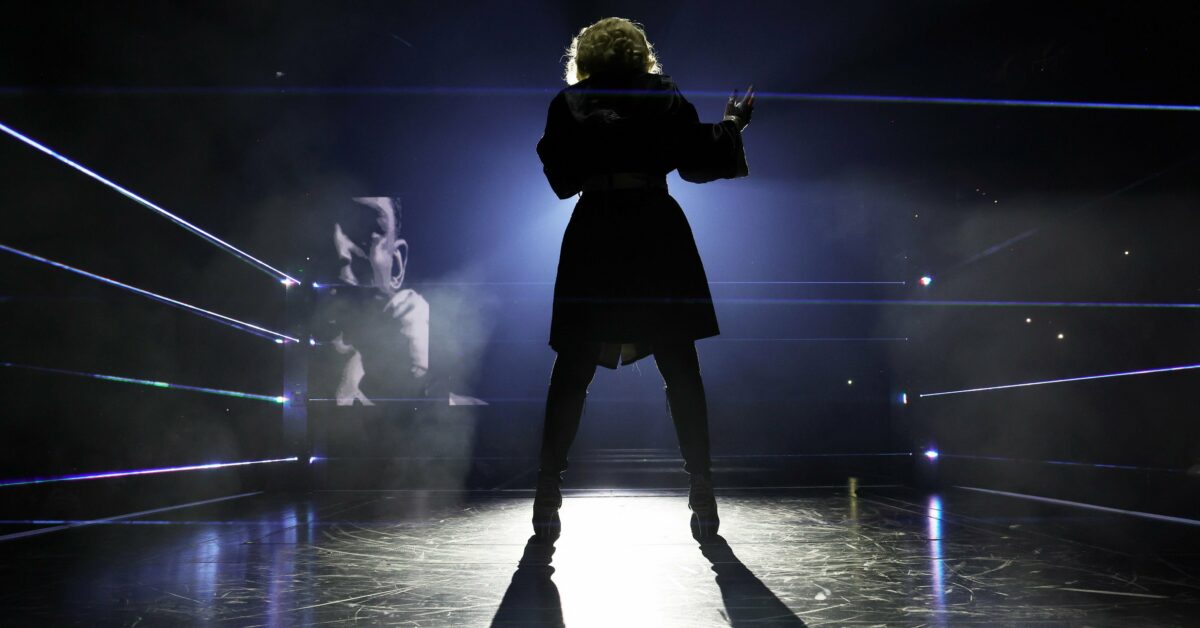
When Madonna came home this week, so did I.
I came home to a version of myself that had grown up against so many odds, surviving hard-to-be-gay 1990s oppression, anti-queer Catholic dogma and all-consuming, AIDS-influenced fear that almost took me out. But not without Madonna’s help as someone who showed me that I could survive — that I deserved to.
I didn’t think I’d make it through those years (Madonna didn’t think she’d make it through last year, after a health scare, in which she “almost died”), but there I was at 11 p.m. on a Monday night in 2024 at Little Caesars Arena at a show with Madonna right in front of me, memories of how she influenced me as a gay boy flooding my mind: seeing her bend gender in the “Express Yourself” video, the way she dismantled sexual shame with “Human Nature” and how she introduced me to queer culture before the internet could when I kept MTV on in the background to catch the “Vogue” video just so I could feel better about feeling different than the other boys.
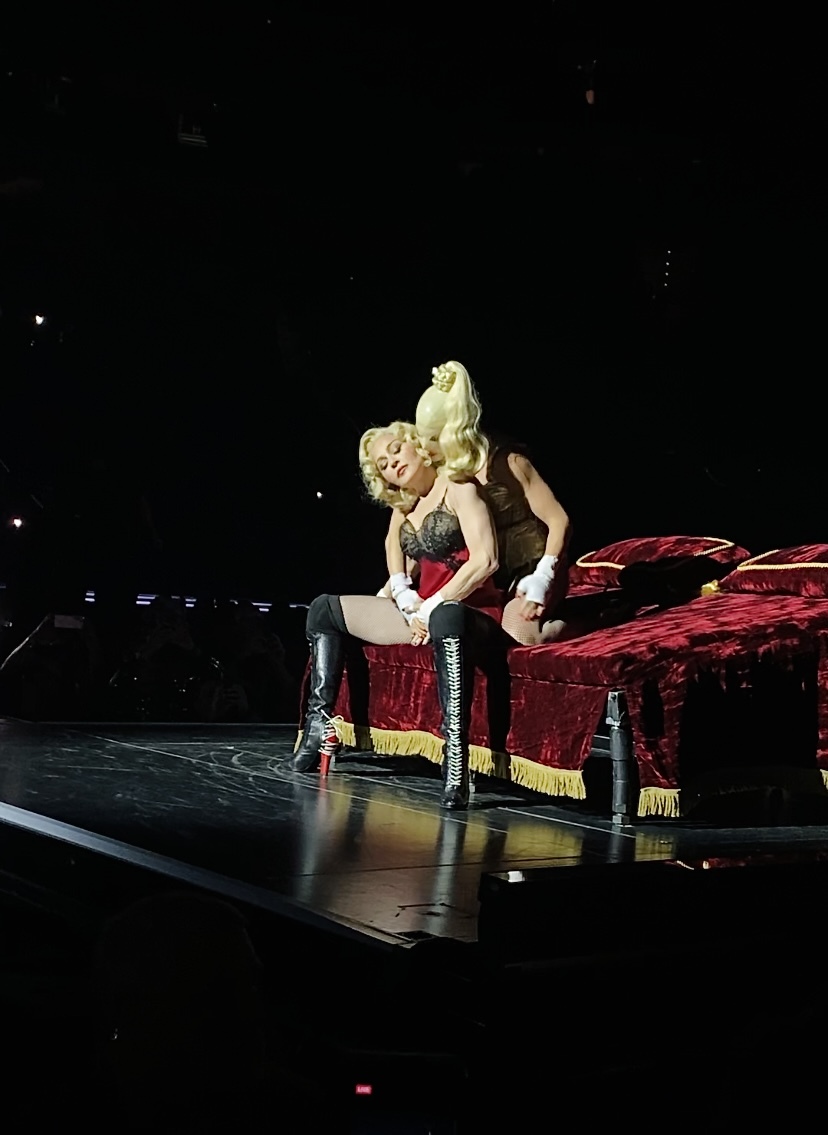
What I saw Madonna do on stage for her Celebration tour may seem less bold by today’s pop star standards, ones that, of course, were heavily influenced by her, but I thought a lot about that gay boy I was and gay boys now and this era of “don’t say gay.” At the concert, Madonna said gay and queer and lesbian and sex and masturbation and kink and AIDS. She also literally said “I went to my first gay nightclub here,” referring to growing up in Rochester Hills and, as a teen, clubbing at Menjo’s in Detroit.
All grown up now, I was clubbing with Madonna in Detroit at a much bigger Menjo’s (you can imagine anything if you try hard enough — the story of my youth), watching as she made out with a female-presenting dancer during “Hung Up.” Boys wore heels throughout this queer extravaganza, and sometimes not much else (a couple wore just jockstraps, their butts completely exposed). Some boys were in Madonna drag, including one that wore the cone brasserie made famous by her, also worn by her in this show.
During “Don’t Cry For Me Argentina,” reimagined as a march anthem, she wore a Pride flag as a cape, raised a fist and chanted, “No fear.” For “Vogue,” she honored the song and video’s ball culture roots and, through images of the Stonewall riots era, history of the gay rights movement. During that number, she also took on the role of house mother — she really has mothered so many of us — at the end of a runway where voguers served and we all, including Madonna, ate. And Bob the Drag Queen, who could celebrate Madonna in a way that spoke directly to my inner gay boy whose life she changed, emceed the whole show.
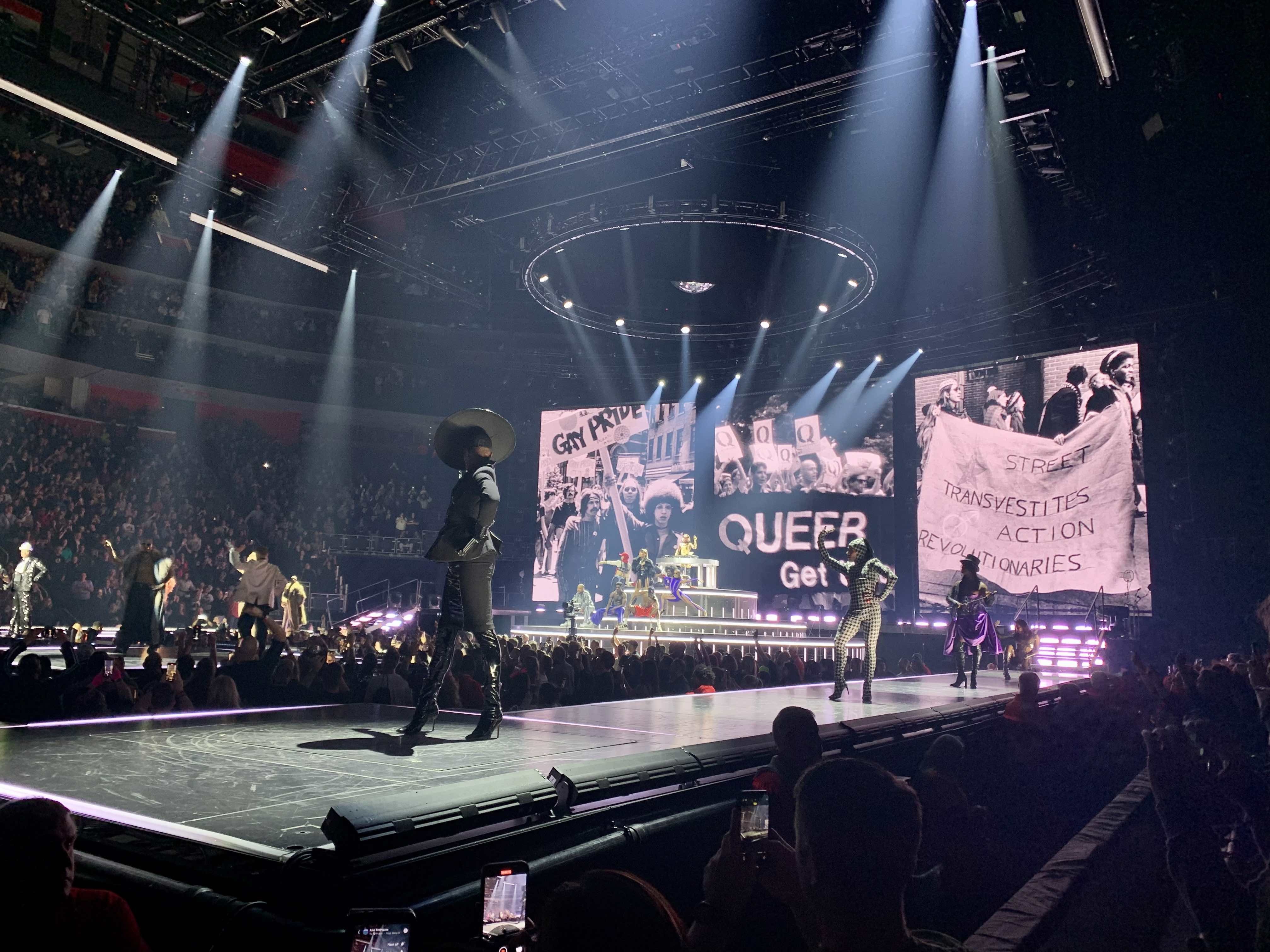
The entire concert was performance art with heart, where Madonna did show her age. But it was in a way you wouldn’t expect: She was much softer than I had ever known her to be. If she has been seen as someone who is impermeable to life’s punches and the emotion that nostalgia can carry, it might only be because, until this once-in-a-lifetime show, the Bay City native has never performed 40 years of her hits-filled catalog just miles away from Menjo’s with her 92-year-old father, Silvio, who she revealed has Parkinson’s, in attendance — all after nearly dying last year.
“If you think I’m tough and if you think I’m a warrior and if you think that I’m a beast or a superhero, it’s because of my father,” Madonna told the audience during a long, emotional stretch in which she recognized him in a way that made it feel like she had few chances left to do so, even noting that he’s still running his vineyard near Traverse City.
The 65-year-old gay icon spoke a lot about where she came from, recognizing a sign a fan made that read “Hometown Hero” and offering sincere gratitude to her Michigan fans who have stood by her. “Thank you for supporting me through all these years,” Madonna said, nearly tearfully.
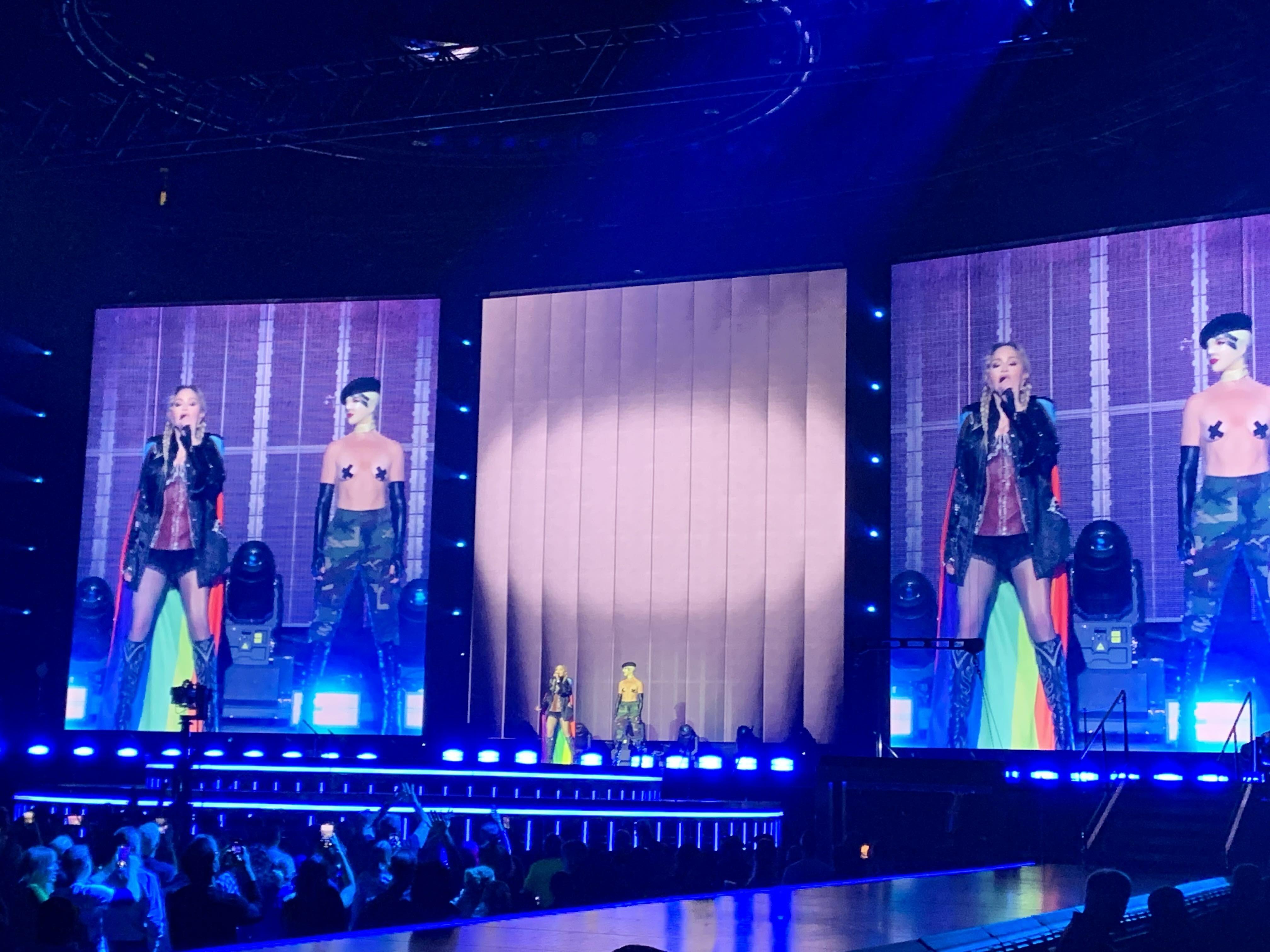
Emotions were also felt during the gut-punch of what came after “Holiday,” which she performed on a revolving turntable — an extraordinary part of the stage — as she and her dance troupe moved with carefree ease. The song was as vibrantly performed as it was upon its release in 1983. But then the bouncy pop hit slowed to a haunting crawl, just one dancer left, no longer standing but lying on the ground. As she gently placed her jacket over the dancer's body, Madonna’s voice whimpered the last couple of lyrics, before they both disappeared into the darkness.
She came back to the stage alone singing “Live to Tell” inside a framed lift that rose high toward the roof of the arena. During what became a heartfelt tribute, screens displayed images of friends she lost to AIDS, which was inspired by an Instagram account she follows, @theAIDSmemorial. Martin Burgoyne, Madonna’s close friend and an artist who was instrumental in the early years of her career, was featured first, followed by another AIDS victim, and another. Then many, many more.
I was scared of being gay when I was a teenager who learned that people, many of them gay, were dying of AIDS, and when it comes to political theater, it doesn’t get much more breathlessly moving than this. I knew the “Live to Tell” part of the show would stir something inside of me when I first read about it and saw a clip. What I didn’t expect from feeling immersed in her performance — a feeling that was ever-present during the show — was experiencing myself during my own eras as Madonna was going through hers. If this is what they call “the soundtrack of our lives,” Madonna, like a prayer, the kind I used to cling to in bed late at night as a suicidal kid hoping I’d grow up and be OK, more than took me there.

